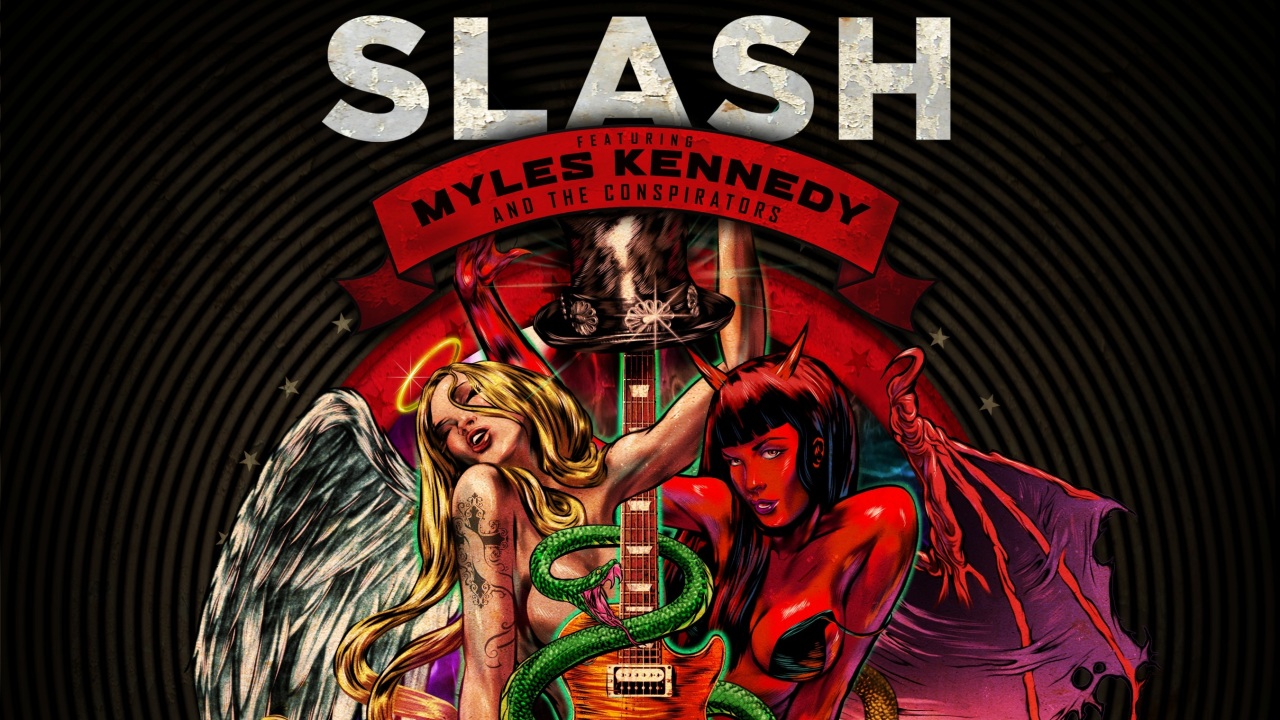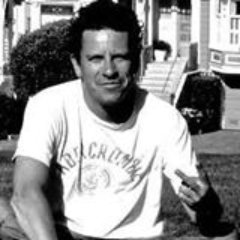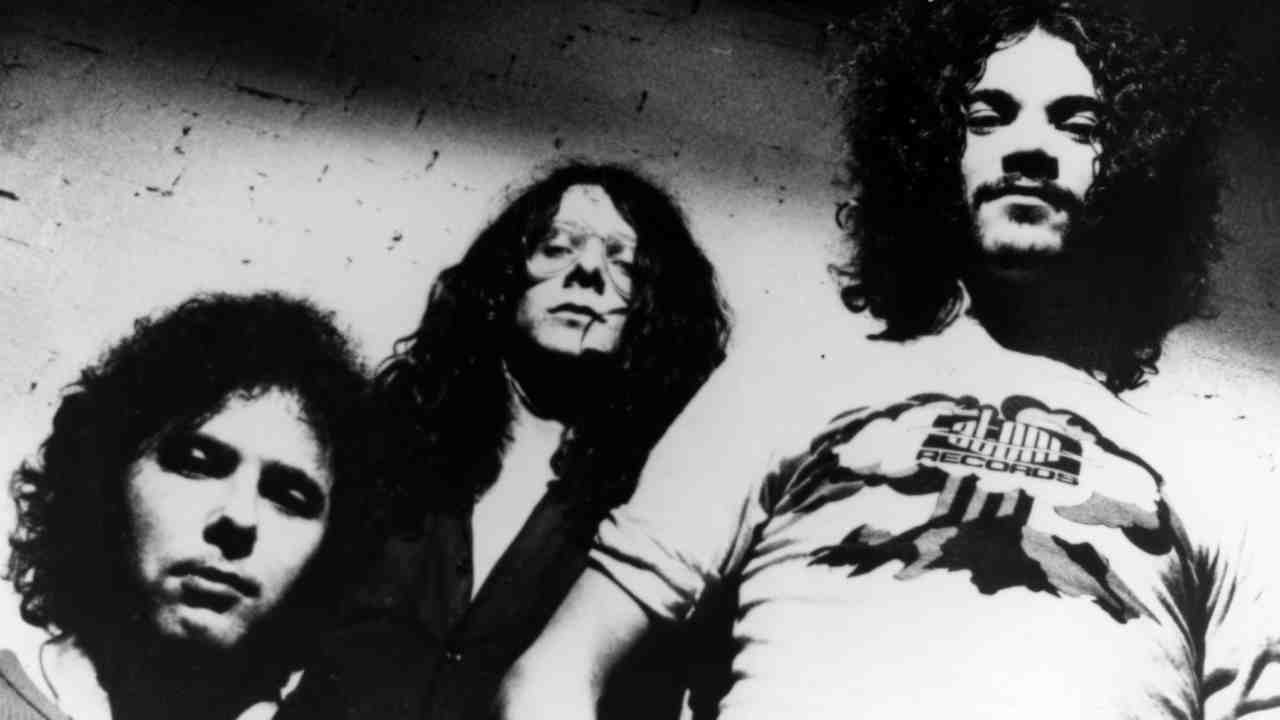You can trust Louder
He’s not an easy man to pigeonhole, Slash. To the extent that any reputation is unimpeachable, he ambled scot-free from the debris of the GN’R implosion, a Marlboro dangling from his squinted grin. To journey from Stoke to Sunset Strip while spending the majority of one’s adult life resplendent in a buckle-belted top hat and poured-on leather pants yet still attain iconic status and unsullied cool is no mean feat.
Possessor of an instinctive once-in-an-era talent and a terminally laid-back persona, there’s always been a niggling doubt that since the demise of the world’s most dangerous band TM, he’s never quite recaptured full potency. Alternating between the roles of team-playing diplomat (GN’R, Velvet Revolver) and goofing-with-the-guys roustabout (Slash’s Snakepit and 2010’s eponymous love-in) – although after years of dealing with Messrs Rose and Weiland, you can hardly blame him – there’s a sense that he’s never re-found the necessary foil to stretch his game to top-level.
Enter Myles Kennedy, a Christian-raised music school graduate with a jazz-guitar background and not exactly hell-bent-for-leather credentials; the mainstream polish/post grunge sheen of Alter Bridge is worlds apart from his libertine livewire stage presence. Initially contributing two tracks to the last album, a tentative courtship ensued with Kennedy ultimately assuming full vocal duties on the following tour, the creative partnership blossoming into a singer/guitarist dynamic evidenced by shared songwriting credits and a mutual respect.
From the off there’s an instant chemistry – the title track warming up with a twitchy little funky wah-wah riff before launching into a Mr Brownstone-style run, topped off by an instant-classic chorus dropping into a breakdown channelling the spirit of Ozzy’s I Don’t Know. It’s fucking exciting. One Last Thrill ups the tempo – a snarling pre-Appetite style punky workout which finds Kennedy spitting out a quickfire Lydon-esque rant, unsettling in both its aggression and delivery. Standing In The Sun switches from a tension-building, looping bass-line cut through with signature guitar licks, to a masterful modern rock radio-pleasing chorus with such consummate craft, it’s immediately apparent this is several notches above what has gone before.
The range and texture of Kennedy’s voice is breathtaking, changing register and style to whatever the song requires. A four-octave tenor with a melodramatic upper and lower end vibrato, he can rip, whisper or soar in perfect pitch. No mere technician or mimic, however, he also manages to wring sizeable portions of emotion from whatever’s at hand. It’s a rare gift, and no wonder that Jimmy Page beat a hasty path to his door when Robert Plant nixed the Zeppelin tour.
His greatest achievement here, though, is the galvanising effect he’s had on Slash’s songwriting. Any residual fat has been neatly trimmed but nothing is sacrificed. Slash’s instantly recognisable bluesy fills and shredding runs are scattered throughout and he’s always managed to draw from a bottomless well of world-class riffs, yet everything here is amplified, more focussed: shifting out of his comfort zone with momentous results.
Nowhere is this better witnessed than on Anastasia. Starting with a finger-picked classical figure (think Rush’s The Trees meets a half-speed Yngwie Malmsteen), in just over six minutes he traverses a Paganini-inspired fugue, a swaggering Welcome To The Jungle-esque riff and a drawn out solo revealing levels of virtuosity combined with Page-like feel. It’s jaw-dropping.
Sign up below to get the latest from Classic Rock, plus exclusive special offers, direct to your inbox!
Though of a classic rock bent, there’s also a rich thread of modernity running through it all. It maybe a tad overlong: sure the arrangements are lean and there’s little hint of chaff, but a reduction to eight or nine tracks might have lent it a more satisfying cohesion. But, to paraphrase Hunter S Thompson, when you’re on this much of a roll there’s a tendency to push it.
All in, it’s a superlative achievement – one of the first truly great albums of 2012 and a poke in the eye to those who conflate sobriety and the onset of middle age with a loss of edge. Seems like that famous top hat was concealing a rabbit all along – it just needed Myles Kennedy to coax it out.
Tim Batcup is a writer for Classic Rock magazine and Prog magazine. He's also the owner of Cover To Cover, Swansea's only independent bookshop, and a director of Storyopolis, a free children’s literacy project based at the Volcano Theatre, Swansea. He likes music, books and Crass.


